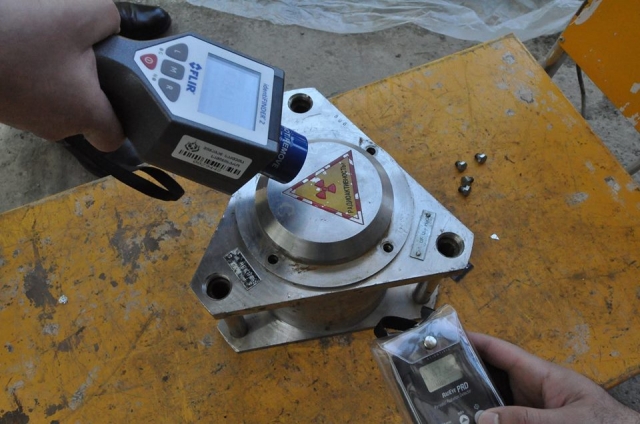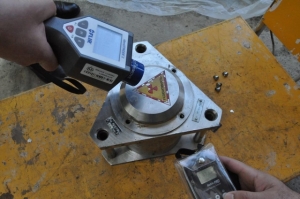Georgian Intelligence Arrests Five for Attempted Nuclear-Grade Material Sale
TBILISI – Georgia’s intelligence service agency has detained five citizens for allegedly trying to sell nuclear weapons-grade uranium.
Security service investigator, Savle Motiashvili, announced to the media shortly after the arrest that intelligence officers had detained five Georgian citizens in the Black Sea town of Kobuleti when the group planned a USD 3 million sale of weapons-grade uranium.
According to Motiashvili, investigators found the uranium while it was still housed in a radioactive-proof container and hidden in the Kobuleti home of one of the accused.
A radiology review revealed that the 1,665 gr. substance contains two radioactive isotopes: Uranium-238 and a small amount (0, 23%) of Uranium-235.
If found guilty of illegally selling radioactive material, the five held in police custody could face up to 10 years in prison.
On April 1o, intelligence officers arrested three Georgian citizens and three Armenian nationals while the group planned a USD 200 million sale of weapons-grade nuclear material.
These arrests were the latest in a series of alarming incidents over the last decade that has involved the illicit sale and trafficking of radioactive material across Georgia’s borders.
In January, the State Security Service arrested three men who were accused of trying to sell Cesium-137, a highly radioactive isotope that is a waste product from nuclear reactors and can be used to disperse deadly doses of radiation with high explosives.
Turkish officials arrested two Georgian citizens in mid-2015 after they were found hand carrying 1.2 kilos of Cesium-137 across the Georgian-Turkish border, the same corridor used by most Caucasus recruits bound for the Syrian Civil War.
A resident of Georgia’s Russian-backed breakaway region of South Ossetia was arrested in 2006 by the national border guard service while trying to smuggle USD 1 million of radioactive uranium into Georgia from neighboring Russia.
Western governments have been under intense pressure since the 1990s to help halt the black market sale of radioactive material in the former Soviet space.
By Tamar Svanidze
Edited by Nicholas Waller












